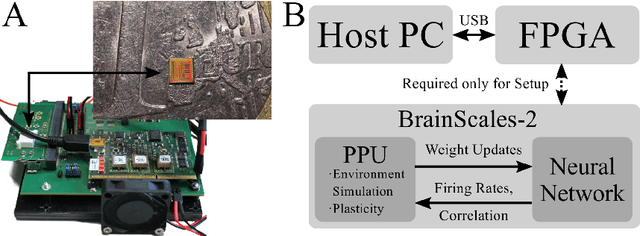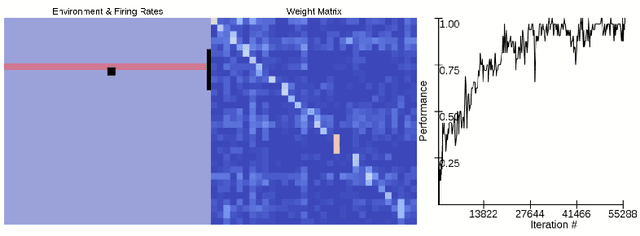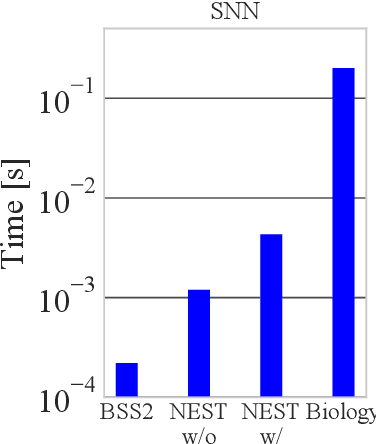Mihai Petrovici
Brain-Inspired Hardware for Artificial Intelligence: Accelerated Learning in a Physical-Model Spiking Neural Network
Oct 01, 2019


Abstract:Future developments in artificial intelligence will profit from the existence of novel, non-traditional substrates for brain-inspired computing. Neuromorphic computers aim to provide such a substrate that reproduces the brain's capabilities in terms of adaptive, low-power information processing. We present results from a prototype chip of the BrainScaleS-2 mixed-signal neuromorphic system that adopts a physical-model approach with a 1000-fold acceleration of spiking neural network dynamics relative to biological real time. Using the embedded plasticity processor, we both simulate the Pong arcade video game and implement a local plasticity rule that enables reinforcement learning, allowing the on-chip neural network to learn to play the game. The experiment demonstrates key aspects of the employed approach, such as accelerated and flexible learning, high energy efficiency and resilience to noise.
 Add to Chrome
Add to Chrome Add to Firefox
Add to Firefox Add to Edge
Add to Edge